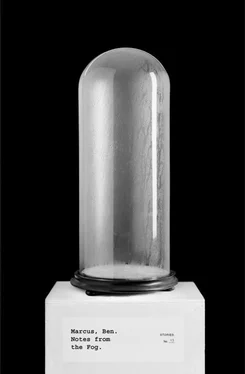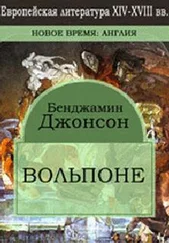One strains not to be too judgmental of such work. While the project is ambitious, it is deeply imperfect. It celebrates the sorrow of knowing nothing. It revels in bafflement. It asks us to admit that we might not really be living. It seems to invite us to die without understanding even the most basic principles.
Perhaps we might be more sympathetic to the creator. Water is so hard to get right. It is difficult to do shorelines. The horizon is next to impossible. Horizons have never been done well. They cannot be forced, but so often they are forced, and then they are disgraceful. Hospitals are tricky, but not just hospitals. The people in them. The people outside them. People, in or out of buildings, on the ground, floating, at rest. People conjoined, people alone. Such a disgrace when they are not done right and they have never been done right. They are done badly, all the time, and then soon that is simply the way people are always done—with bodies and eyes, with feelings, so finally conventional, so deeply unimaginative—and something disgraceful becomes the norm. The norm is the hospital. The norm is people on their beds, having trouble breathing. Not breathing, in truth, is the norm. If a true norm must be spoken of, it would have to be not breathing, not moving, no longer living. Taking into consideration all the people who have ever lived. The norm would be to be dead. One must admit that being dead has become the norm.
A vacant hospital might have been easier for this artist, set in a vacant lot, itself situated in an empty space free of obstacles, a space so pure that no one could enter it. Perhaps no one could even know about it. A smaller, contained project, through which this creator could test out ideas more safely. Vacant vehicles to flow in and out of the empty hospital, across transparent roads, discharging vacancy, creating no impact whatsoever on the surroundings, which has never been achieved. That might have been a better apprentice work. Or simply the hospital itself, without a lot, without a site, absent a landscape. A real hospital for today, satisfying all of today’s true needs, if that’s not too much to ask. A hospital twisting in space. Less complicated. But space is hard. Rarely has depth been done well, for instance. Ever? Often it seems so melodramatic. One cannot recall a time when space has been done well. Sometimes evening is believable. Sometimes. Should one—one must ask—stop desiring what has never been achieved? Is this hospital, in its near miss of authenticity, meant to remind us how finally unreal everything will always feel, or is such an effect simply too old-fashioned to commend?
One thing this piece does impeccably well is to use wind to create feeling. On the island a wind, created in the usual way, travels around objects, cooling them, but that’s not all. The wind is not created with any special technique. It is as technologically simple as it ever was, but this creator has a special feel for the use of wind. This creator is, without question, a genius in the use of wind in spaces both outdoors and in, a wind that follows one home from the hospital, across the realistic waterway, back to the adjacent island, itself so deeply real one feels an enduring confusion, a confusion one must now conclude is wind caused. This creator has fashioned a wind that does not leave you alone, even as you enter your home, which was created especially for this project, and even as you crawl into your highly vivid, full-scale bed made of real materials, this wind follows you, encircling you, holding you rather coldly as you wait, perhaps forever, for more understanding. Even if one will never arrive at this fuller understanding, this wind makes one certain that such an understanding is out there, however finally unavailable to people like us.
A child was sick in Kansas.He had fever. His father prodded him awake, dressed him, led him outside in the dark morning for chores. The child slumped and the father raised him upright, propped him on the machine. When the father turned away the child fell, seemed to die. The father drove the child to water and sank him at the head, lowering his body into the cold lake, but the child sputtered and cried. Back at the house, in the front yard, the father warmed the child’s body in the sunshine, shook him to rouse him. The father slapped the child, as he’d seen done to other children who would not respond, and the child sat up and cried, looking at his father with fear. The child’s sister came and struck her father, climbed on his back. She was too small and could not stop her father and yet he stepped away. He was afraid now.
The doctor came in the evening and measured the child’s temperature, tested his limbs for heat, for bloat, drew a vial of blood. There was a fever, but no infection, no mistakes heard in the child’s cavity. The boy was tired and should rest. Yet something other was afoul. Had the child, the doctor asked, been down a well or in a cave by the lake, or had the child tasted something dead. What is this, the doctor asked, scraping something from the child’s body. The doctor wiped the child’s mouth with a rag, then sniffed the rag. He questioned the child and the child grew soft and loose in his arms. There was no indication of poison’s nine signs but there was the listlessness of the child, its cold body. There was the unidentifiable paste the doctor had removed from the child, a whitish glue, a tacky gum. Had something been scraped on the child or pierced him or had the child been operating any of the yard machines without his mask, breathing too much of their smokes and fumes? The father did not think so but he agreed with the doctor that they would treat the child as though he’d been harmed from the outside. They took him to his room and they waited each day for the child to rise as ever, to commence his day’s chores, but the child kept to his bed and took no food and allowed himself only enough water to soothe his mouth. He would not read and he no longer sang in the morning, before his family had woken. When his family visited his room, the child did not look at them. He no longer spoke. At times, from downstairs, they thought they could hear him speaking, in the voice of an older man, calm and mature, but when they arrived in his room the child was silent and perfectly still, staring at the wall, hardly breathing.
The doctor had heard of this, or something like this, and he thought he might know of someone. He made a call to a colleague in Chicago who had returned some children from spells and coldness, and the colleague telephoned a contact of his own, along a chain of professionals threading into ever more mysterious illnesses. A week later, a specialist from North Dakota arrived at the child’s house in the early morning. He rubbed a cream on the child. The child thrashed when the cream touched him, clutched at his own throat as if to choke himself. The specialist asked that no one watch. By nightfall the child sat up. He got dressed in his best clothes and tidied his room. He sang one of his old songs, but coldly, a march he learned at the nursery. He spoke it like a foreign language. He combed his hair wet, posed at the mirror. He appeared cured, but when he spoke, to his father and the onlookers—the doctor had asked his colleagues to come view the techniques of the specialist—his message was not kind. First the child told them that they would die. He told them where and when. Sometimes he mentioned how, and he smiled, his boyish mouth pale, his teeth yellow from the illness. The child touched each of them at the face when he sentenced them. There seemed to be no possibility that he was wrong. They stayed perfectly quiet, receiving their dates, blinking with the new information. To his sister the child announced a date of death many years distant, more than a hundred years away, and her face was small and serious as she tried to count out her dying age in her head, so far in the future. She seemed to know she could not live that long and she laughed, hoping her brother was joking. Her brother, unsteady on his feet, spoke in whispers, moving through his room. It took all of his strength to speak. Some spots of blood were seen at his eyes. The specialist flinched each time the child spoke, as if he’d be harmed. He put more cream on the child and the child staggered back, falling to his bed, only to rise up again, speaking in the calmest voice of matters none of them cared to hear.
Читать дальше











